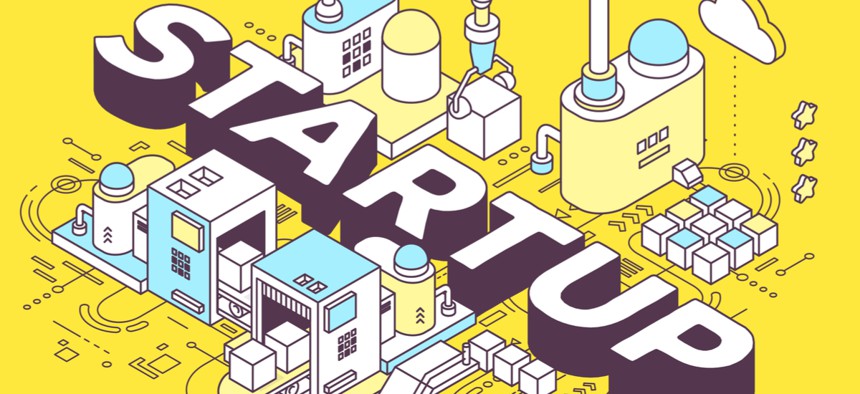Startup Funding Bill Makes A Comeback

wowomnom/Shutterstock.com
A group of lawmakers reintroduced the Startup Opportunity Accelerator Act, which would set aside funding for startup accelerators.
A group of lawmakers is resurrecting a years-old effort to set aside funding for the nation’s startups.
The Startup Opportunity Accelerator Act would award cash prizes and grants to organizations helping to stand up new small businesses, per an amendment to the Small Business Act, which directs the Small Business Administration to promote business creation especially by women, veterans and minorities.
Reps. Lisa Blunt Rochester, D-Del., and Brian Fitzpatrick, R-Pa., reintroduced the SOAR Act in the House this week. Sen. Cory Booker, who introduced similar legislation in 2014, is sponsoring the bill in the Senate.
» Get the best federal technology news and ideas delivered right to your inbox. Sign up here.
The bill would establish a program that would give up to $50,000 to organizations supporting businesses including accelerators, which often coach startups through the fundraising and growth processes and sometimes make their own seed investments. If enacted, the bill directs the SBA head to begin implementing such a program.
Groups eligible for funding should be able to show that they’d help at least 10 new small businesses a year.
The bill is also designed to spur economic activity in areas often neglected by the concentrations of venture firms and accelerators in Silicon Valley, New York, Boston and other tech hubs.
“We know growth accelerators work at stimulating investment and job creation but too often those gains are concentrated and leave American workers and entrepreneurs in rural, suburban, and urban areas behind,” Fitzpatrick said in a statement.
Those underserved areas could use more “experienced leadership, office space, access to financing opportunities, and structured mentorship,” he said.
The SBA already funds startup accelerators and reported that in 2014 and 2015 it supported 128 accelerators for 5,000 companies, which together raised $1.5 billion. Those companies also employed almost 20,000, according to SBA.
SOAR would require oversight and transparency of that SBA program, and focus on geographic areas experiencing entrepreneurial gaps. It would also focus on entrepreneurs who are women, veterans, minorities, disabled and located in rural communities.


